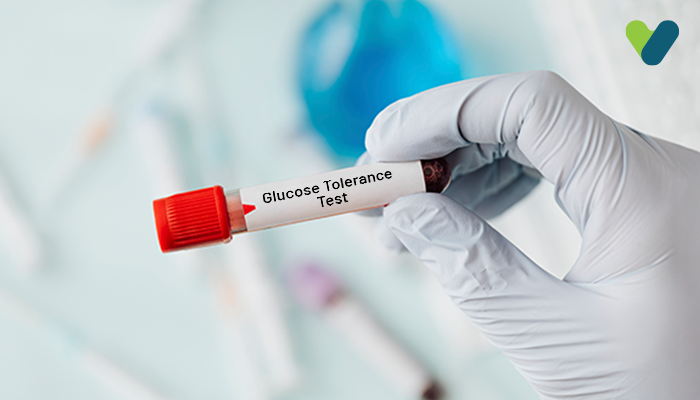An oral glucose tolerance test, or an OGTT diabetes test is used for screen people for diabetes. The test tells you if you have a high likelihood of developing diabetes and can also discern if you are already diabetic.
What Is the OGTT Test?
In all likelihood, one of these situations or conditions will prompt your doctor to ask for an OGTT diabetes test:
What is an OGTT diabetes test
An OGTT diabetes test is conducted in a lab or at a clinic or hospital. Although the name is misleading it involved two injections to collect two blood samples, one before and one after you orally ingest glucose. This is how it goes:
Step 1: your base blood sugar will be established at this stage. The medical professional assigned to you will take a blood sample from a vein in your arm.
Step 2: sugar time! You do deserve some reward for having to suffer two jabs. You will be given a mixture of glucose dissolved in water. If only it was a bar of chocolate!
Step 3: wait for 2 hours
Step 4: a second jab to evaluate your blood sugar levels after the consumption of glucose
Purpose of an OGTT Test
If you are pregnant, then you need not undergo much preparation. You can eat in the morning prior to your test provided you are not consuming something sugary and provided your doctor and not explicitly advised you not to.
Fasting is essential for others going in for the OGTT diabetes test. You must not consume anything other than water after about 10pm the prior night. You also need to regulate your carb consumption for three days prior to the test.
In both cases, while these are the norms, it is advisable to consider asking the medical practitioner who recommended the test how you should prepare.
Procedure of an OGTT Test
If you are not working from home, you might want to consider taking the day off or working from home because although side effects are most often minor, they can include:
Result Accuracy of OGTT Test
- Bleeding
- Fainting
How Reliable Is This OGTT Test?
For most people, the below chart is applicable for the OGTT diabetes test:
Normal blood sugar range - below 140mg/dl
Prediabetic blood sugar range - above 140mg/dl to 199mg/dl
Diabetes - 200mg/dl
However, for pregnant women any blood sugar level above 140mg/dl in the OGTT diabetes test is a cause for alarm:
The medical practitioner will probably put you through the following secondary process if your blood sugar level is found to be above 140mg/dl
Step 1 - retake base blood sugar level
Step 2 - another glucose mixture is administered
Step 3 - blood sugar is measured every hour for the next 3 hours
If you are in the clear, congratulations but please avoid celebrating with a tub of ice cream because your doctor probably ordered the test because you seem like you aee at high risk for diabetes. Adopt a healthy diet - perhaps with reasonable cheat days - to stay in the clear.
If you emerge as prediabetic or as having type 2 diabetes, you need not be alarmed but you need to improve your diet and incorporate daily exercise pronto. You cannot afford to wait or have regular chest days, but unlike a diabetic you will not need to say no to a few chest days linked to celebrations, feasts and vacations.
If you emerge as diabetic, you must take your health very seriously. Diabetes is like a gateway disease to other more serious health issues like heart disease, neuropathy and stroke. When you are very diabetic, your wounds do not heal properly and your blood pressure can dip and spike dangerously, causing fainting spells where you could injure yourself seriously.
Diabetics must immediately eliminate foods and beverages that have a high concentration of sugar like colas and other sugary beverages, coffee and sweetened tea, fruit juices (yes fruits are fine but not fruit juices), sweetened curd, ice cream, candy and refined grains like white rice, white bread and pasta.
Diabetics must consume whole grains and other food items that lower blood sugar levels like flax seeds, tree nuts, even peanuts (in moderation), Greek yoghurt, extra virgin olive oil and apple cider vinegar. India offers a rich variety of whole grains that can be incorporated into a daily diet that is both easy to obtain as well as cost effective.
Conclusion
Procrastination is the devil in a lot of situations and especially so when it comes to your health. Ignoring potential diabetes, especially if you do not make changes to your lifestyle, could worsen your diabetes, result in complications and be potentially life threatening in the long run. If your doctor has asked for an OGTT diabetes test, get it done immediately.


